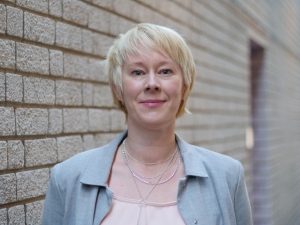PERMAnent Wellbeing in Times of Uncertainty / 3
At a time of unpredictability and change, RNCM Lecturer in Musician’s Health and Wellbeing Sara Ascenso explores how to maintain our mental health and wellbeing.
We are continuing our wellbeing series, exploring the PERMA model developed by psychologist Martin Seligman. He suggests five ingredients for wellbeing: Positive Emotions, Engagement, Relationships, Meaning and Accomplishment.

Today we focus on engagement. This refers to a state in which we are immersed in an activity, with a sense of complete absorption. Nothing else seems to matter but the task at hand. Do you ever find yourself so involved in what you are doing that you lose track of time? You probably experience this frequently while performing or composing. In this state, our actions and awareness become merged and we lose self-consciousness and the perception of time. It is so gratifying that we are willing to do these activities for their own sake. Our reward is the activity itself and we become highly motivated to return to it.
This state is referred in psychology literature as flow (colloquially known as ‘being in the zone’). One of the pioneers of flow research is psychologist Mihaly Csikszentmihalyi. He was interested in knowing how people experienced optimal performance and how they felt during these experiences. He chose the term flow because most people he interviewed described their optimal states as experiences when their work simply flowed, without effort.
The role of flow in sustaining wellbeing and creativity has now been supported by decades of research. Flow can lead to experiencing life more fully and strengthen how we define who we are. It can accelerate learning and mastery and also lead to a strong sense of meaning.
Flow occurs when we have a clear goal, immediate feedback (we know what we need to do, and how well we are performing) and a sense of control. There is also the right balance between skills and challenge: the task is challenging enough so that we are not bored, and not so overwhelming that we become anxious. Research suggests that flow is maximum when the challenges are a few percentage points above our skills (we are slightly stretching ourselves). You can reach flow through a very wide variety of activities: good conversations, practising your instrument, reading, fixing a bike, cooking, etc.
Many of the tasks that provided structure and purpose to our day may now have been disrupted by the pandemic. However, lockdown can offer great opportunities to refocus our attention and increase these experiences of engagement. Here are a few suggestions.
Keeping (some) routine
Routines provide us with predictions about what will happen, giving us comfort and a sense of control. As we learn how to navigate so much uncertainty, we can find it useful to give structure and some predictability to our day (e.g. writing a simple plan and sticking to familiar daily patterns). It is good to keep the plan simple, realistic and flexible.
Having clarity about how we want to spend our time will help enhance our focus, especially at a time when our mood might fluctuate significantly. This season is also a great opportunity to be intentional about including in our routines activities that we find highly engaging: learning something new, a hobby, connecting with others, etc..
Balancing challenge with skills
A way to increase our daily engagement is to work on balancing skills and challenge. If we find a task to be too overwhelming, we can invest in setting smaller, manageable goals. If we find something too boring, we can increase the challenge and aim to stretch our skills (e.g. do something faster, or more efficiently – even the most uninteresting tasks at home!).
Working together
We can also invest in enhancing moments of flow as a team, through shared goals and a focus on constructive collaboration. Virtual ensemble playing, for example, is an amazing way to achieve this.
Using our strengths
Finally, an excellent way to increase engagement is through identifying our strengths and using them more intentionally. A fantastic tool for this is the VIA Character Strengths Survey, a resource that has led to almost two decades of fascinating research on how to live a fulfilling life. The survey gives you a chance to find out your top strengths.
This week we continued to catch-up with our RNCM community about strategies to enhance the 5 PERMA elements. Here’s what Michelle Phillips, Deputy Head of Undergraduate Programmes, has found useful:

Michelle Phillips, RNCM Deputy Head of Undergraduate Programmes
‘I have two young sons, so we have a busy household with me and my husband taking it in turns to work and to parent! Meal times and bed times keep us in a routine, and there’s always something to keep us busy, whether it’s blowing bubbles in the garden or hiding upstairs for meetings!
‘I miss seeing everyone at the RNCM on a daily basis, but I have found that video call tutorials, supervisions and meetings open up a whole new way of connecting. I love seeing people in their homes, and having conversations about how we are, which are often more personal than they might be in a seminar room or corridor. As always, I find that humour is a good way for us all to bond with each other, and to cope with the current situation. My son’s phone rang and played Agadoo during one of my online lectures, and me and another student enjoyed joking about it afterwards!
‘Having seen the wonderful videos that music ensembles around the world have uploaded to social media, I was very pleased to be part of one with my own saxophone ensemble. Recording my baritone saxophone line to ‘Somewhere Over the Rainbow’ and then seeing it slotted together with those of my eight friends and fellow performers definitely gave me a sense that I was contributing to something, and that I was still musically connected to others.
‘I’m enjoying joining in new fun online community things, like #PEwithJoe each day at 9am, and Noel Fielding’s ‘Art Club’ on Twitter. After a week of lockdown, I felt like a tech ninja! My Zoom and Microsoft Teams skills are way ahead of where they would otherwise have been!
‘One of my aims during lockdown is to take Lewis Woolcock up on some advice he gave me over a year ago – to play Zelda on the Nintendo Switch. I’m a big fan of computer games, and am so far finding this one to be a great way to switch off in the evening after a day of emails and meetings. Thanks Lewis!’
Check out Michelle’s ensemble performing Somewhere Over the Rainbow:
23 April 2020


